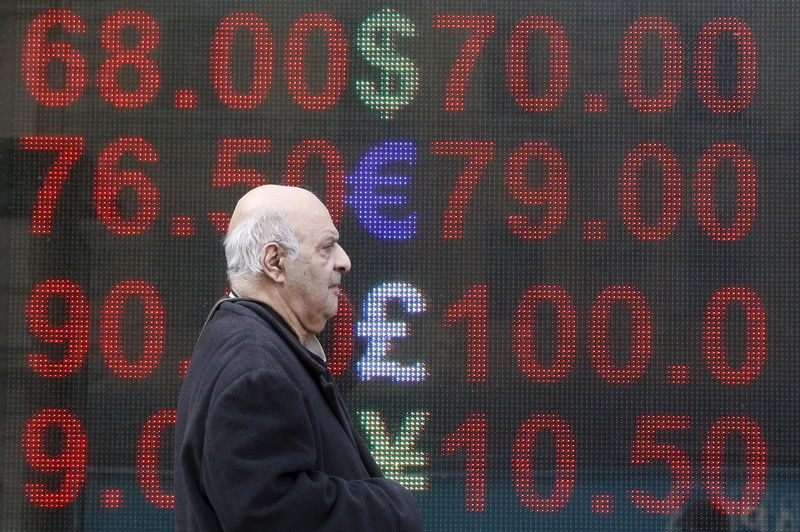Investing.com - The dollar edged higher against a basket of the other major currencies on Monday after the latest U.S. jobs report underlined expectations for the Federal Reserve to stick to a gradual pace of rate hikes this year.
The U.S. dollar index, which measures the greenback’s strength against a basket of six major currencies, edged up 0.11% to 95.13 by 04:22 AM ET (08:22 GMT), re-approaching the more than one-year peak of 95.44 hit on July 19.
U.S. job growth slowed more than expected in July, the Labor Department reported Friday, but labor market conditions continued to tighten, supporting expectations for two additional rate hikes from the Fed this year.
The U.S. central bank kept interest rates on hold last week, but said the U.S. economy was strong, indicating that it is on track to deliver expected rate hikes in September and December.
The euro touched a four-and-a-half week low against the dollar, with EUR/USD edging down to 1.1550.
The single currency has been pressured lower by the diverging monetary policy outlook between the Fed and the European Central Bank, which has pledged to keep interest rates on hold through the summer of 2019.
The single currency was also hit after data showing that German factory orders slumped by 4% in June, the biggest fall in almost 18 months amid weaker overseas demand.
The unexpectedly weak data added to fears over the economic impact of rising trade tensions.
The pound slipped to two-week lows against the dollar, with GBP/USD down 0.29% to 1.2963.
Sterling remained on the back foot after Bank of England Governor Mark Carney warned Friday that there is an “uncomfortably high” risk of Britain exiting the European Union with no deal.
The dollar was little changed against the yen, with USD/JPY last at 111.27.
Meanwhile, China’s yuan slid lower against the dollar, but held above Friday’s 15-month trough. The currency, which is usually closely controlled by Beijing, was at 6.8577 in offshore trading.
The yuan rebounded against the dollar on Friday after Chinese authorities effectively made it more expensive to bet against the currency, which has been hard hit by the escalating trade spat between the U.S. and China.
